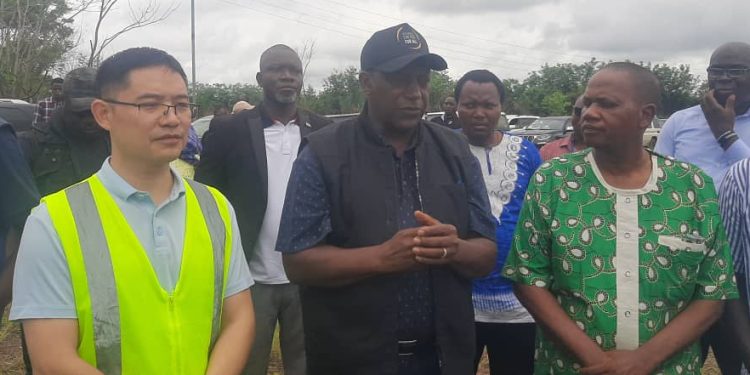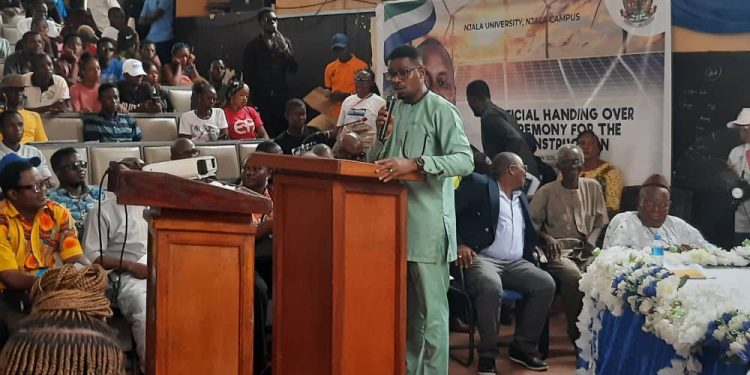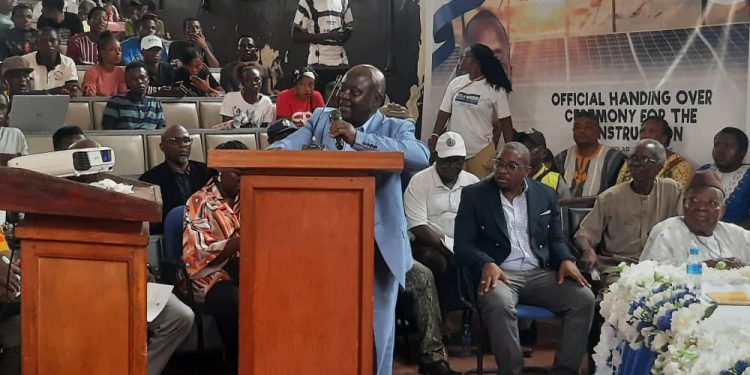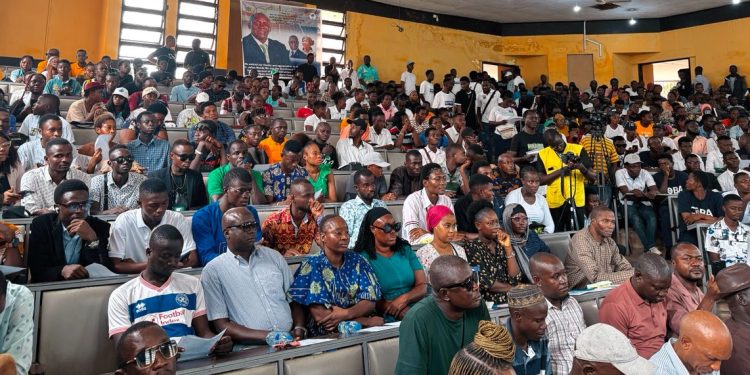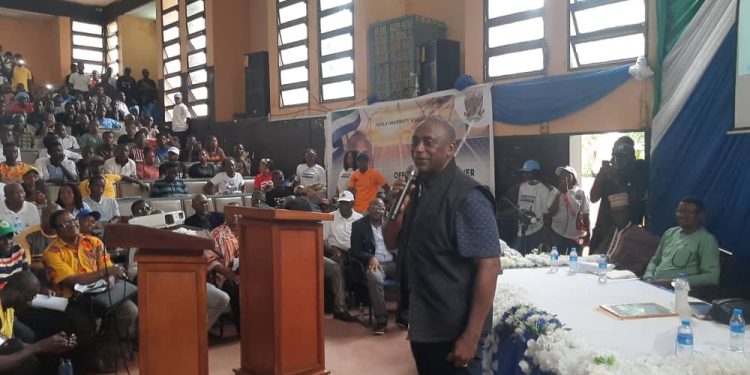By Ayuba Koroma
University Secretariat, Njala Campus – 30th May 2025– Njala University Administration has on Thursday, 29th May 2025, launched the construction of a 1-megawatt (1MW) solar power plant at its Njala Campus. The high-profile event was led by Hon. Dr. Kandeh Kolleh Yumkella, Energy Sector Lead and Chairman of the Presidential Initiative on Climate Change, Renewable Energy and Food Security (PI-CREF).
The solar power project is being financed under the World Bank-funded Regional Emergency Solar Power Intervention Project (RESPITE) and is expected to be completed within one year. In his keynote speech at a public lecture themed “Energy Transition and Human Capital Development”, following the site tour, Dr. Kandeh Kolleh Yumkella outlined the four key pillars of Sierra Leone’s national energy transition strategy: strengthening energy governance, transforming the Electricity Distribution and Supply Authority (EDSA), increasing renewable energy generation, and implementing least-cost solutions to make electricity more affordable for citizens.
In his keynote speech at a public lecture themed “Energy Transition and Human Capital Development”, following the site tour, Dr. Kandeh Kolleh Yumkella outlined the four key pillars of Sierra Leone’s national energy transition strategy: strengthening energy governance, transforming the Electricity Distribution and Supply Authority (EDSA), increasing renewable energy generation, and implementing least-cost solutions to make electricity more affordable for citizens. 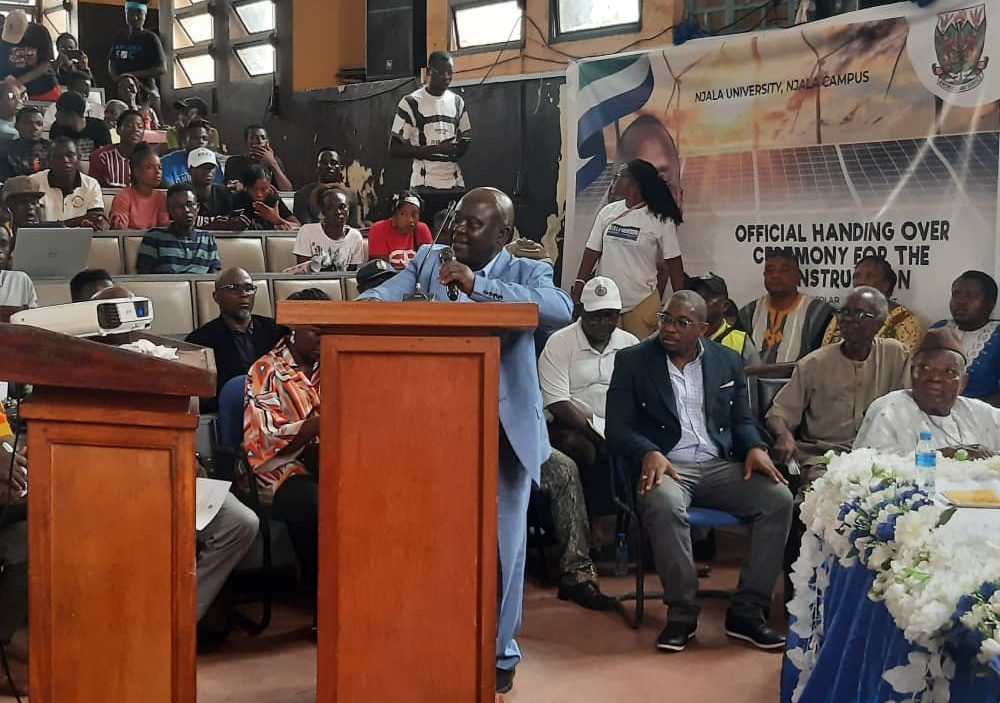 He also cited other major energy projects, such as the 105MW Nant Energy project and the ambitious Mission 300 Compact, aimed at doubling or tripling national energy supply by 2026.
He also cited other major energy projects, such as the 105MW Nant Energy project and the ambitious Mission 300 Compact, aimed at doubling or tripling national energy supply by 2026.
KKY commended the World Bank for its timely intervention and reaffirmed government’s commitment to delivering climate-resilient infrastructure across Sierra Leone.
Dr. Kandeh Yumkella described the project as “a powerful symbol of Sierra Leone’s readiness to transition from fossil fuels to renewable energy.” He emphasized that the plant would not only power buildings but also fuel innovation, research, and national development. “This is not just about solar panels,” he said. “It’s about lighting the path to human capital development and long-term prosperity.”
He used the moment to encourage the young students to consider careers in renewable energy, solar technology, and sustainability. “You are the energy leaders of tomorrow,” he told them. “Be bold, stay humble, and let your discipline define your future.”
Hon. Yumkella shared personal anecdotes and reflections, urging students to believe in their potential and rise beyond their limitations. “I never studied energy, but life demanded that I learn. You too can adapt, grow, and lead.”
Professor Bashiru Mohamed Koroma, Vice-Chancellor and Principal of Njala University, hailed the launch as a “historic, monumental milestone” for the institution.  He noted that Njala has battled erratic and insufficient electricity supply for over four decades, severely limiting its teaching, research, and operations.
He noted that Njala has battled erratic and insufficient electricity supply for over four decades, severely limiting its teaching, research, and operations.
“We are on the verge of a monumental transformation,” he declared. “This project is a beacon of hope for the future of higher education in Sierra Leone.”
To facilitate the project, Professor Koroma revealed that the university has provided 15 acres of land for the solar facility and completed initial land clearing to expedite the installation process. Once completed, the plant is expected to save Njala University over $40,000 per month in electricity expenses. The Deputy Minister of Technical and Higher Education, Mr. Sarjoh Aziz-Kamara, also addressed the audience, describing the solar plant as a “critical enabler” of a more reliable and resilient education system.
The Deputy Minister of Technical and Higher Education, Mr. Sarjoh Aziz-Kamara, also addressed the audience, describing the solar plant as a “critical enabler” of a more reliable and resilient education system.
“This is more than an energy intervention; it is an investment in Sierra Leone’s future. Stable power is essential for digital learning, laboratory research, and campus-wide innovation,” Mr. Kamara said.
Credit: Public Relations Unit, Njala University


